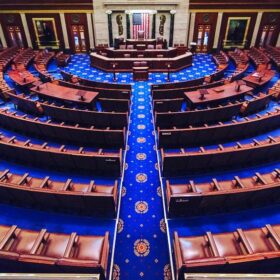The New Jersey Legislature has passed two key pieces of legislation intended to spur solar development and investment across the state.
The first, S2605, looks to establish a successor program to the state’s solar renewable energy certificate (SREC) program under the Board of Public Utilities (BPU), providing incentives for the development of at least 3,750 MW of behind-the-meter solar facilities and 750 MW of community solar by 2026. This goal may be extended or revised by the board as necessary to conform to the State’s solar energy policies.
The bill also revises the state’s competitive solicitation process for new solar projects, with the hope that this will further incentivize the development of at least 1,500 MW of large-scale solar power facilities by 2026. As part of this revision, the BPU will be required to hold a solicitation for large-scale solar projects at least every 18 months.
The bill also revises the state’s guidelines on siting solar projects, focusing on protecting conservation and agricultural land.
Alongside S2605, the legislature has also sent S3484 to Gov. Murphy’s desk, an act which looks to establish a dual-use solar project pilot program for unpreserved farmland and would allow land used for dual-use solar project to be eligible for farmland assessment, under certain conditions.
This bill specifically directs the BPU to establish a “Dual-Use Solar Energy Pilot Program,” which authorizes up to 200 MW of solar projects on unpreserved farmland. The pilot would allow for continued agricultural production under and around the solar panels. It authorizes and encourages dual-use solar projects up to 10 MW each and lays the foundation for a permanent dual-use solar energy program.
Both bills have been lauded by renewable energy advocates, with Scott Elias, senior manager of state affairs in the mid-Atlantic for the Solar Energy Industries Association, commenting:
“These bills will help facilitate at least 3,750 megawatts of new solar power generation by 2026. Although the devil is in the details over what incentive levels the BPU ultimately determines, how the competitive solicitation is designed and whether reasonable siting criteria for solar projects prevail, these bills send a strong signal that the Garden State is committed to advancing solar energy.”
The bills are currently awaiting signature from Gov. Phil Murphy, which is considered to be all but inevitable.
This content is protected by copyright and may not be reused. If you want to cooperate with us and would like to reuse some of our content, please contact: editors@pv-magazine.com.









By submitting this form you agree to pv magazine using your data for the purposes of publishing your comment.
Your personal data will only be disclosed or otherwise transmitted to third parties for the purposes of spam filtering or if this is necessary for technical maintenance of the website. Any other transfer to third parties will not take place unless this is justified on the basis of applicable data protection regulations or if pv magazine is legally obliged to do so.
You may revoke this consent at any time with effect for the future, in which case your personal data will be deleted immediately. Otherwise, your data will be deleted if pv magazine has processed your request or the purpose of data storage is fulfilled.
Further information on data privacy can be found in our Data Protection Policy.